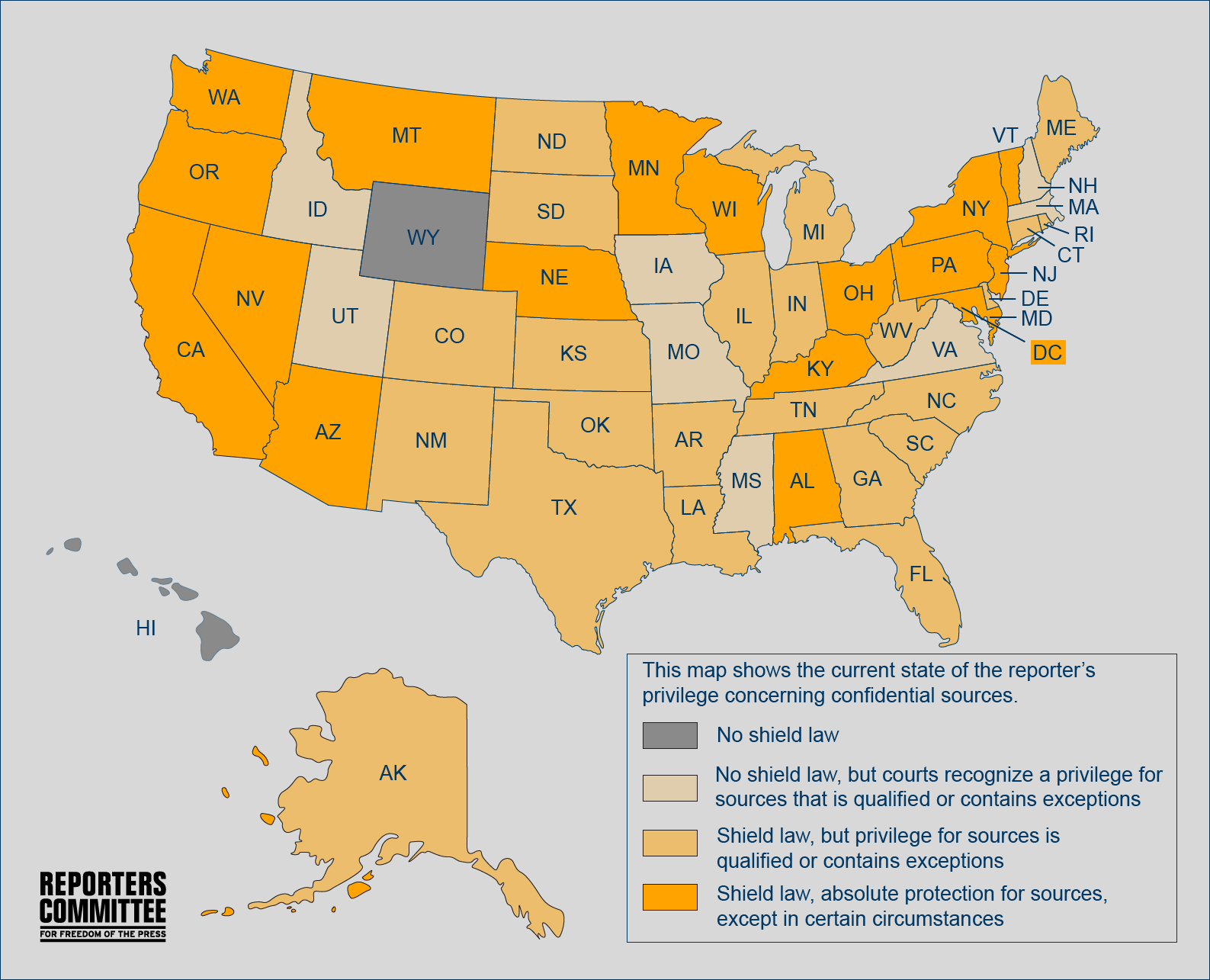Reporter Shield Laws in America
In America, reporter’s privilege varies by state. The major changing component is the shield law. Shield laws are rules that allow journalists to have the right to either disclose information or withhold information. There is no federal shield law because of the First Amendment. In 2005, Congress tried to pass a federal shield law called the Free Flow Information Act. This law would protect reporters from punishment for withholding confidential sources in civil or federal cases.
 |
 |
There are a couple more states that don’t have shield laws, including Utah, Idaho, Missouri, and a few more. Comparatively, these states’ courts do recognize reporter’s privilege and make exceptions for them, varying case by case. Missouri in particular has expressed that the reason they don’t have any shield laws is the same reason Congress has not passed a federal shield law.
Arkansas, Texas, Oklahoma, and the rest of the states have shield laws, but these and a few more, in particular, have exceptions pertaining to the various cases and need for information. Arkansas’ law was approved in 1936 and has been revised a couple of times since. In summary, the law allows reporters to withhold information. Judges can overturn the rule depending on the necessity of the information. For the most part, reporters have a lot of wiggle room to avoid doxing their sources.
Texas actually adopted the Free Flow of Information Act after it was rejected by the federal court. The person who submitted the subpoena has to go through a long process in order to get to the reporter to produce materials or testify.
The rest of the states such as California, New York, and Arizona all protect reporters in full, with very little wiggle room for courts. Meaning they provide protection to all reporters, with very few exceptions. California’s shield law states that any editor, publisher, reporter, or other person connected with any news outlet “cannot be adjudged in contempt by a judicial, legislative, administrative body, or any other body having the power to issue subpoenas for refusing to disclose,” any information obtained by doing research for any news outlets. New York and Arizona’s shield laws are nearly identical to California’s.

No comments:
Post a Comment